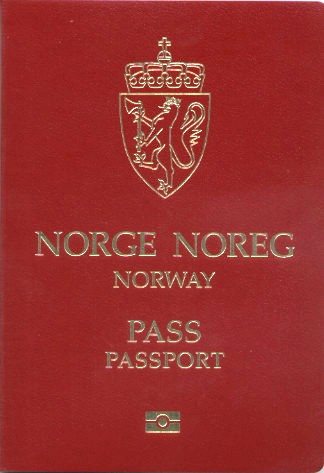
GETTING YOUR VISA TO STUDY IN THE U.S.A. takes time but can be a surprisingly easy procedure and well worth the effort. The number of student visas issued by the United States has grown significantly in the last year in many countries.

Visa Definitions
The U.S.A. issues different types of visas to students.
A full-time student would receive an F-1 or M-1 visa.
Your spouse and children would receive F-2 or M-2 visas.
An Exchange Visitor would receive a J-1 visa.
Exchange Visitors come to the U.S.A. for consultation, training, research or teaching, or for an approved Au Pair or temporary work position.
After a college, university, or English language school has accepted you for admission to full-time study, the school will send you a document called an I-20 form, which is the application for an F-1 visa.
If you will be an Exchange Visitor, the organization or U.S. Government agency that is sponsoring you will send you a DS-2019 form, which is the application for a J-1 visa.
FIRST, your school or university will send you a form confirming that you have been accepted at an institution authorized by the U.S. Citizenship and Naturalization Service (USCIS) to enroll non-immigrant students (the I-20 for an F-1 visa or the DS-2019 for a J-1 visa. You will read and sign this form.)
Be careful to make sure that the name and spelling on your passport is exactly the same as the name and spelling on your application for acceptance to the school and that the school has entered your name as it appears on your passport on the I-20 or DS-2019 Form.
SECOND, you will need to make an appointment for a visa interview and to pay some required fees. Under a revision in the regulations, Student Visas can be issued up to 120 days before the date on your form I-20. Exchange Visitor Visas can be issued anytime before the date on the DS-2019. You should apply as early as possible for your visa.
Each U.S. Embassy has a Web site providing instructions on how to make an appointment for a visa interview and other information on the visa application process. The web site for the Embassy in your country can be located at: http://www.usembassy.gov/ The web site can also tell you the expected wait time for a visa in your country. Student visa applicants should receive priority by the Embassy or Consulate so if your program of study will begin soon be sure to explain this when applying for your visa.
There is a $200 fee which supports the cost of the computer system used to record your stay in the United States (SEVIS). You can pay this fee with a credit card that is valid internationally. Go to https://www.fmjfee.com/index.jhtml to pay the fee and make sure you print a copy of your receipt. You must pay the SEVIS fee at least three days before the date of your visa interview.
You will also need to pay an additional $131 for the visa application fee in your country at the U.S. Embassy or Consulate or at a bank that the Embassy designates. Specific information on where to pay the visa application fee can be found at the web site of the U.S. Embassy in your country.
THIRD, all applicants must then submit the form DS-156, Application for a Nonimmigrant Visa, and DS-158, Contact Information and Work History for Nonimmigrant Visa Applicant. These forms are available at http://travel.state.gov/visa/frvi/forms/forms_1342.html .
Male students between the ages of 16 and 45 also complete the form DS-157, Supplemental Nonimmigrant Visa Application found at: http://travel.state.gov/visa/frvi/forms/forms_1342.html .
Complete these forms neatly and completely. Again, remember to use the exact same order and spelling of your names as they are found in your passport. Then you will print them out and bring them to the Embassy. If you don't have access to the internet, you can get the forms at the Embassy.
FOURTH, prepare for your visa interview. It is more important than ever to apply for your visa well in advance of the date you will begin your studies. If possible, apply three months before you plan to travel to the U.S.A. This will give you extra time if there are delays at the Embassy, or if you wish to appeal a decision in the event of a denial All applicants' names have to be submitted for a security clearance. Citizens of some countries have to undergo additional screening that takes several additional weeks of processing.
You may wish to visit or contact the nearest U.S. Department of State-affiliated advising center office in your country, located throughout the world and listed at http://educationusa.state.gov/centers.htm. The staff at these centers will be able to explain where to pay the visa fees and how to schedule your interview.
Five Tips for Getting your Visa
Wear a business suit or dress
Be specific when you answer questions
Bring bank statements or proof of employment
Provide details of your study plans
Tell the truth
Stay calm and be professional
What you wear is important. Consider the interview a formal event. Business attire is appropriate. First impressions can be crucial, since there will be little time to speak with the officer, who will often have only a few minutes to conduct the interview and make a decision.
Be prepared to give your information quickly and completely. If you are unable to answer the questions in English, and the visa officer does not speak your language, you can ask for an interpreter. Speaking English is not a requirement for a student visa. In fact thousands of students come to the United States each year to learn how to speak English.
The visa officer needs to know your specific objective for studying in the United States. Be direct and state your education plans briefly and clearly. Visa officers like to hear honest, specific responses to questions. They generally react poorly to applicants who give vague answers, memorize a speech, or make overly solicitous comments about how great and wonderful the United States is.
You should have a specific academic or professional objective. Be prepared to explain why it is better to study your specific field in the United States than to study at home. Be ready to say exactly what you will study and for what career your U.S. studies will prepare you.
If you are going to the U.S.A. to study English and then earn a degree, be able to explain your complete program of study. Remember, it is not enough to just say, "It is better to study in the United States." Give valid reasons why it is better for you. You should be able to explain why you chose to study at a specific school and be able to give information about that school and where you will live (dormitory, host family or apartment.)
If you will return home to complete university studies after studying English in the United States, bring proof of your student status in your country. A letter from a university professor supporting your study plan can be helpful. Young people around the world are often unsure of their plans. However, in the visa interview it is best to give definite answers. If you seem to be unsure about what you will be doing, the visa officer may believe that you are really going to the United States for reasons other than education. In addition to a specific study plan, have some detailed information about the program you plan to attend and where you will live.
Grades do make a difference. If your marks are below average, be ready to explain how you are going to succeed in the United States. A letter from a school director or teacher or from your U.S. admitting school stating that the proposed program of study in the United States makes sense and explaining your good prospects for success can be helpful. If there were special circumstances (such as a death or illness in the immediate family) that contributed to the bad grades, have the school explain those special circumstances.
Financing
You must have adequate, demonstrable financial support to live and study in the United States. Visa applications are generally stronger if the financial support comes from family, employers, or other institutional sponsors located in the home country.
If your parents will pay for your education, be ready to document how your family gets its income. Bring a letter from your parents' employers stating what they do, how long they have worked at those organizations, and how much they earn.
When visa officers see information that is contradictory or does not make sense, they do not grant visas. If your family can only show enough income to support you in the United States, the officer will become suspicious.
Large sums of money in bank accounts may not be sufficient proof of financial support. When providing information about your bank accounts, ask someone at your bank for a letter that states how long the account has existed, and what the average balance in the account has been. That should convince the visa officer that you and your family have a long and stable history of business at the bank.
"Intent to Return"
Most student and exchange visitor visa applications are approved. The most common reason for a student or exchange visitor application to be denied is that the person applying for the visa has not proven to the Visa Officer that they will return to their country when they complete their studies in the U.S.A. This rule is called Section 214.b.
To determine your "intent to return" home, the visa officer will ask you a series of questions about your connections to your home country and about your study plans. You will have to demonstrate to the officer that your family has the ability to pay for the first year of your proposed stay in the United States and that you have realistic plans to finance the remainder of your education.
You must have all of the required forms with you including your I-20 or DS-2019 and the SEVIS payment receipt. You should bring any financial documents to demonstrate how you will pay for your education and any documents that might help demonstrate why you will return to your country. Some examples of such documents are previous passports demonstrating travel abroad, bank or salary statements, family documents or student records.
If all else fails...
If you are denied a visa, there may be something you can do to reverse the denial. You may appeal the decision. In most cases, you will need to provide additional documentation that was not presented with the initial application. A fax or e-mail from your U.S. school to the Embassy or Consulate in your city containing details about your qualifications, and requesting reconsideration, can be helpful in pursuing a successful appeal. Faxes should be addressed to the Chief of Nonimmigrant Visas at the Consular post in question. Fax and telephone numbers are available on the Department of State web site at http://usembassy.state.gov.
In some cases, a visa officer may request additional information such as proof of employment, or ownership of a home or business. You should respond with the information requested.
Once a visa is approved, you should receive your visa within a few days.











